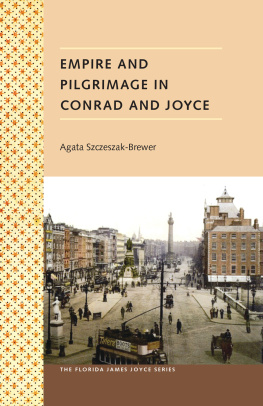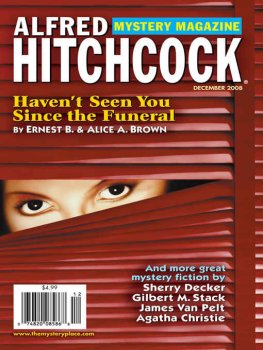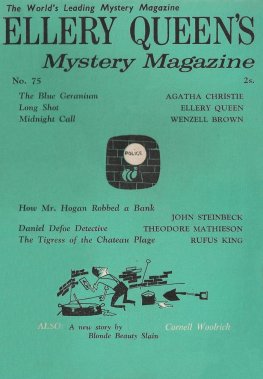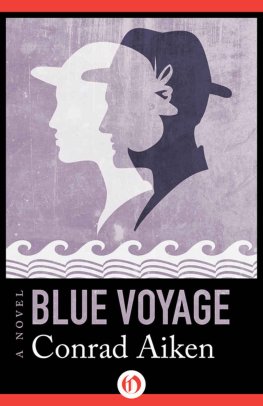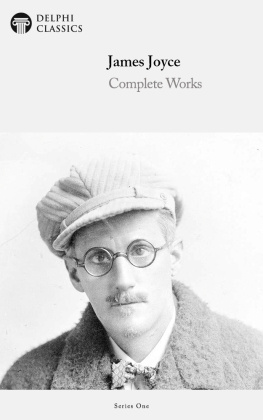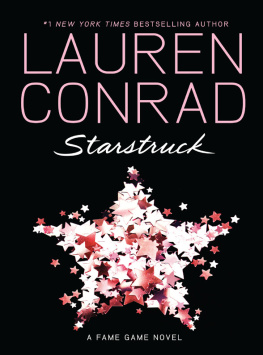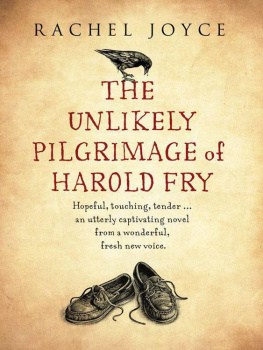Szczeszak-Brewer Agata - Empire and Pilgrimage in Conrad and Joyce
Here you can read online Szczeszak-Brewer Agata - Empire and Pilgrimage in Conrad and Joyce full text of the book (entire story) in english for free. Download pdf and epub, get meaning, cover and reviews about this ebook. year: 2011;2017, publisher: University Press of Florida, genre: Politics. Description of the work, (preface) as well as reviews are available. Best literature library LitArk.com created for fans of good reading and offers a wide selection of genres:
Romance novel
Science fiction
Adventure
Detective
Science
History
Home and family
Prose
Art
Politics
Computer
Non-fiction
Religion
Business
Children
Humor
Choose a favorite category and find really read worthwhile books. Enjoy immersion in the world of imagination, feel the emotions of the characters or learn something new for yourself, make an fascinating discovery.
- Book:Empire and Pilgrimage in Conrad and Joyce
- Author:
- Publisher:University Press of Florida
- Genre:
- Year:2011;2017
- Rating:5 / 5
- Favourites:Add to favourites
- Your mark:
- 100
- 1
- 2
- 3
- 4
- 5
Empire and Pilgrimage in Conrad and Joyce: summary, description and annotation
We offer to read an annotation, description, summary or preface (depends on what the author of the book "Empire and Pilgrimage in Conrad and Joyce" wrote himself). If you haven't found the necessary information about the book — write in the comments, we will try to find it.
Empire and Pilgrimage in Conrad and Joyce — read online for free the complete book (whole text) full work
Below is the text of the book, divided by pages. System saving the place of the last page read, allows you to conveniently read the book "Empire and Pilgrimage in Conrad and Joyce" online for free, without having to search again every time where you left off. Put a bookmark, and you can go to the page where you finished reading at any time.
Font size:
Interval:
Bookmark:

Empire and Pilgrimage in Conrad and Joyce
The Florida James Joyce Series

UNIVERSITY PRESS OF FLORIDA
Florida A&M University, Tallahassee
Florida Atlantic University, Boca Raton
Florida Gulf Coast University, Ft. Myers
Florida International University, Miami
Florida State University, Tallahassee
New College of Florida, Sarasota
University of Central Florida, Orlando
University of Florida, Gainesville
University of North Florida, Jacksonville
University of South Florida, Tampa
University of West Florida, Pensacola
EMPIRE AND PILGRIMAGE IN CONRAD AND JOYCE
Agata Szczeszak-Brewer
Foreword by Sebastian D. G. Knowles
University Press of Florida
Gainesville Tallahassee Tampa Boca Raton
Pensacola Orlando Miami Jacksonville Ft. Myers Sarasota
Copyright 2011 by Agata Szczeszak-Brewer
All rights reserved
Printed in the United States of America on acid-free paper
22 21 20 19 18 17 6 5 4 3 2 1
First cloth printing, 2011
First paperback printing, 2017
LIBRARY OF CONGRESS CATALOGING-IN-PUBLICATION DATA
Szczeszak-Brewer, Agata.
Empire and pilgrimage in Conrad and Joyce / Agata Szczeszak-Brewer ; foreword by Sebastian D. G. Knowles.
p. cm.(The Florida James Joyce series)
Includes bibliographical references and index.
ISBN 978-0-8130-3539-0 (cloth: alk. paper)
ISBN 978-0-8130-5464-3 (pbk.)
1. Joyce, James, 18821941Criticism and interpretation. 2. Conrad, Joseph, 18571924Criticism and interpretation. 3. Imperialism in literature. 4. Pilgrims and pilgrimages in literature. I. Title.
PR6019.O9Z825 2010
823.'912dc22
2010020782
The University Press of Florida is the scholarly publishing agency for the State University System of Florida, comprising Florida A&M University, Florida Atlantic University, Florida Gulf Coast University, Florida International University, Florida State University, New College of Florida, University of Central Florida, University of Florida, University of North Florida, University of South Florida, and University of West Florida.
University Press of Florida |
|
In memory of Izabela and Wincenty Stelmaczonek
Contents
Foreword
Conrad and Joyce: I like to think of them as Corley and Lenehan in Two Mandarins, an imaginary short story from a lost collection called Modernists (which also features D. H. Lawrence as Bob Doran, W. B. Yeats as Little Chandler, and T. S. Eliot as Gabriel Conroy). In that story, the two unlikely companions wander through the turn-of-the-century universe, maddeningly unclear in their discourse and intentions, searching for a transcendence to which they are both pathologically averse. It is Agata Szczeszak-Brewers great achievement that she can see through her authors smokescreens, can tolerate their paradoxes and hypocrisies, and can flick them into focus with a clear and dispassionate eye. Szczeszak-Brewer marches them up the hill, through a subtle and sympathetic reading of Conrads teleological and hegemonic ambitions, and marches them down again, through a freewheeling engagement with Joyces subversive attitudes to the colonialist enterprise. The resulting dyad gives us Conrad and Joyce as a combined Penelope figure, first weaving (Joseph Conrad, conquering the day) and then unweaving (James Joyce, unconquering the night). By considering the characters in Joyce and Conrads work together, we now see that Don John Conmee and Inspector Heat are cut from the same cloth, as are, from a more variegated bolt, the Harlequin and Buck Mulligan. Dedalus has a marked resemblance to Decoud; Leopold Bloom and Nostromo share, in their stealth and circularity, the habits of the flneur. We now understand how The Dead shares a swooning uncertainty with Lord Jim, and why the most important thing about the first part of Ulysses is that it ends, as Heart of Darkness begins, with a ship.
Above all, Szczeszak-Brewer has provided depth and balance for the outward odysseys of all the journeyers in Joyce and Conrad, and by extension, of all the pilgrims in modernism from Rachel Vinrace to the fisherman of What the Thunder Said: each outward journey now has its inward counterpart, a voyage in every way the equal of the journey in the world. The act of colonialization has been internalized, with deep and useful results. Conrad and Joyce, through the work of this important study, have been shown to be two things of opposite natures depending on one another, as the imagined on the real. To be able to bring such opposites together requires art as well as scholarship: Empire and Pilgrimage in Conrad and Joyce is a work of both clarity and grace.
Sebastian D. G. Knowles
Series Editor
Acknowledgments
I am deeply indebted to Thomas Jackson Rice, my mentor and friend, for invaluable insight, motivation, and an example of exceptional scholarship. Sebastian Knowles gave me useful suggestions and asked challenging questions, as did Georgia Johnston and the anonymous reviewer of the manuscript. I am also grateful to other people who have been generous readers and commented on all or some parts of the manuscript: Kevin Dettmar, Meili Steele, Kevin Lewis, Ed Madden, Jeanne Garane, Julia Levin, Sarah Allen, Warren Rosenberg, Crystal Benedicks, Robert Royalty, and David Blix. My thanks go to Wieslaw Krajka for scholarly guidance when this project was in its infancy and to my mother, Maria Szczeszak, for my first lessons in English.
I wish to thank several organizations and fellowships for their generous support of my research. The National Endowment for the Humanities awarded me a stipend to participate in the summer 2007 seminar on Ulysses at Trinity College, Dublin. I would like to thank the seminars participants for inspiration and encouragement. My thanks also go to the Wabash College Deans Office, the English Department, and the colleges Faculty Development Fund as well as its Byron K. Trippet research fund. I also received support from the Newberry Library in Chicago, the National Library of Ireland, and Trinity College Library, and travel grants from the International James Joyce Foundation and the Joseph Conrad Society of America. The Rotary Foundation Scholarship for International Ambassadorial Scholars provided very generous funding for the first two years of my research.
appeared in Teleology without a Telos? Constitutive Absence in James Joyces Pilgrimage in Displacing the Center: Pilgrimage in a Mobile World, edited by Simon Coleman and John Eade, special issue of Mobilities 2 (November 2007): 34762. I wish to thank the editors of these volumes for their kind permissions to reprint sections of my articles in this book.
Above all, I would like to thank my husband, Josh Brewer, for his unconditional love, scholarly advice, and enormous patience, and my son, Kuba, for putting all my worries about commas and square brackets into perspective.
Introduction
Cartographers and Pilgrims
Mapping the Void
Colonial conquest has always relied on territorial representationsmapmaking and charting of new itinerariesbut also on skillful interpretation of gathered data. In order to claim, appropriate, and exploit new land, European powers sent out explorers, land surveyors, and other readers of foreign landscapes who had to tame the real into the symbolic, the representational. Literary criticism employs similar tactics. Frank Budgen comments on his familiarity with James Joyces
Next pageFont size:
Interval:
Bookmark:
Similar books «Empire and Pilgrimage in Conrad and Joyce»
Look at similar books to Empire and Pilgrimage in Conrad and Joyce. We have selected literature similar in name and meaning in the hope of providing readers with more options to find new, interesting, not yet read works.
Discussion, reviews of the book Empire and Pilgrimage in Conrad and Joyce and just readers' own opinions. Leave your comments, write what you think about the work, its meaning or the main characters. Specify what exactly you liked and what you didn't like, and why you think so.

